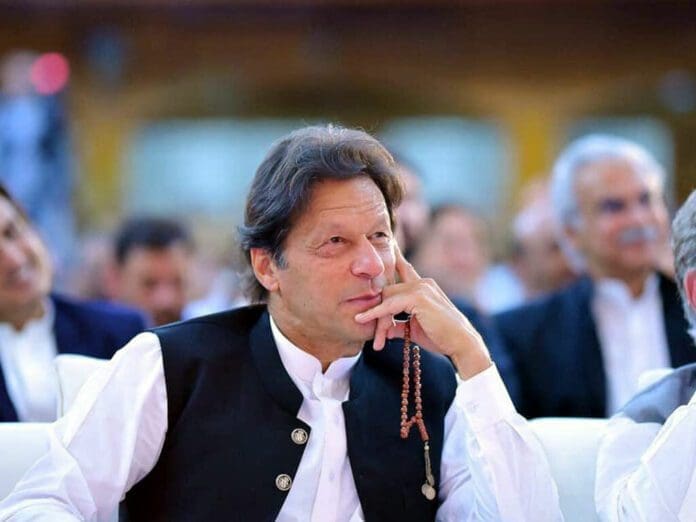In the world of international relations, messages can often be lost in translation. This is particularly true when it comes to Imran Khan, the ex-Prime Minister of Pakistan. To Western observers, his frequent mention of the “Riasat-e-Madina” or “State of Madina” may raise concerns about the imposition of Sharia law. However, delving deeper into Khan’s vision reveals a commitment to social justice, the rule of law, and welfare for all, firmly rooted in moderate Islamic principles.
Misinterpretations of “Riasat-e-Madina”
The concept of the State of Madina has deep historical and cultural significance in Islam. It refers to the first Muslim community founded in Madina under the leadership of Prophet Muhammad. However, Khan’s usage of this term does not imply a desire to revert to a 7th-century form of governance. Instead, it represents a call to embrace the fundamental principles of justice, equality, and social welfare upon which the State of Madina was built.
Justice and the Rule of Law
The State of Madina was renowned for its unwavering commitment to justice, ensuring equal treatment under the law for all individuals, regardless of their social or economic status. When Imran Khan speaks of Riasat-e-Madina, he envisions a Pakistani society where the rule of law prevails, providing protection to the weak against the powerful. In this vision, justice is not a privilege but a universal right.
A Welfare State
Another crucial aspect of the State of Madina was its proto-welfare state system, which Imran Khan aims to implement in modern-day Pakistan. The goal is not to establish a theocratic state, but to build a robust social security network that safeguards the most vulnerable and marginalized members of society. This includes comprehensive healthcare, quality education, and equal opportunities for all – values that align with Western ideals.
Not Pro-Taliban or Anti-West
It is a misconception to view Khan as pro-Taliban or anti-Western. His efforts to engage in negotiations with the Taliban should not be seen as an endorsement of their practices or ideology. Instead, they reflect a pragmatic approach to conflict resolution and peace-building in a region plagued by instability. Khan’s stances are not rooted in religious fanaticism but rather a genuine desire for peace and stability.
Similarly, his criticism of certain Western policies should not be interpreted as a rejection of Western society or values. It is rather an appeal for mutual respect, understanding, and equity in global politics. Khan’s emphasis on Pakistan’s sovereignty and independent foreign policy should be seen as an assertion of national dignity rather than anti-Western sentiment.
Conclusion
Imran Khan’s vision for Pakistan is deeply influenced by his interpretation of the State of Madina – a system of governance that prioritized justice, equality, and social welfare. His rhetoric is not that of a religious extremist but rather the aspirations of a moderate Muslim leader striving to build a progressive society that protects its citizens while respecting their cultural and religious heritage. By viewing Khan from this perspective, the West can recognize him as a potential ally in the pursuit of a more equitable and just global order, rather than as an adversary.

Mashallah.you explained the truth.At the end things are settled on Morality.
I strongly agree with this article. IK is really want to stand the country on its feet with dignity. He believes in equality, just and religious freedom.
As Salam Alikum
Millions Trillions Thanks for all your efforts……………
Again Thanks and regards
Very useful information Sir ge…………………
1st view………………………….1st view
I am hundred percent satisfied from your conclusion and thoughts, Islam is religion of peace, Islam told us to be kind to every religion and respect their visions, Islam give protection to every religion and minorities, Islam always tell us to forgive everyone for the sake of Allah happiness, it’s model Hazrat Muhammad SAW always preach peace and forgive those, who killed his closed ones ,to set the point how much forgiveness can be made by setting the high levels of forgiveness instead of revenge, if Islam is extimistic religion, then our prophet Muhammad SAW were that much kind humble and forgiver , we belongs to ummat e Muhammad SAW, and we learn from his Sunnah, if we are not following the teaching of hazrat Muhammad SAW then we are not following Islam,
well written and we will do our part.
Agree and thankful for your efforts
Great iniciate we all strongly supportingu
May Allah bless you for this effort
Well explained the concept of “Riasst e Madinah”.
IK has started and we will achieve together insha’Allah